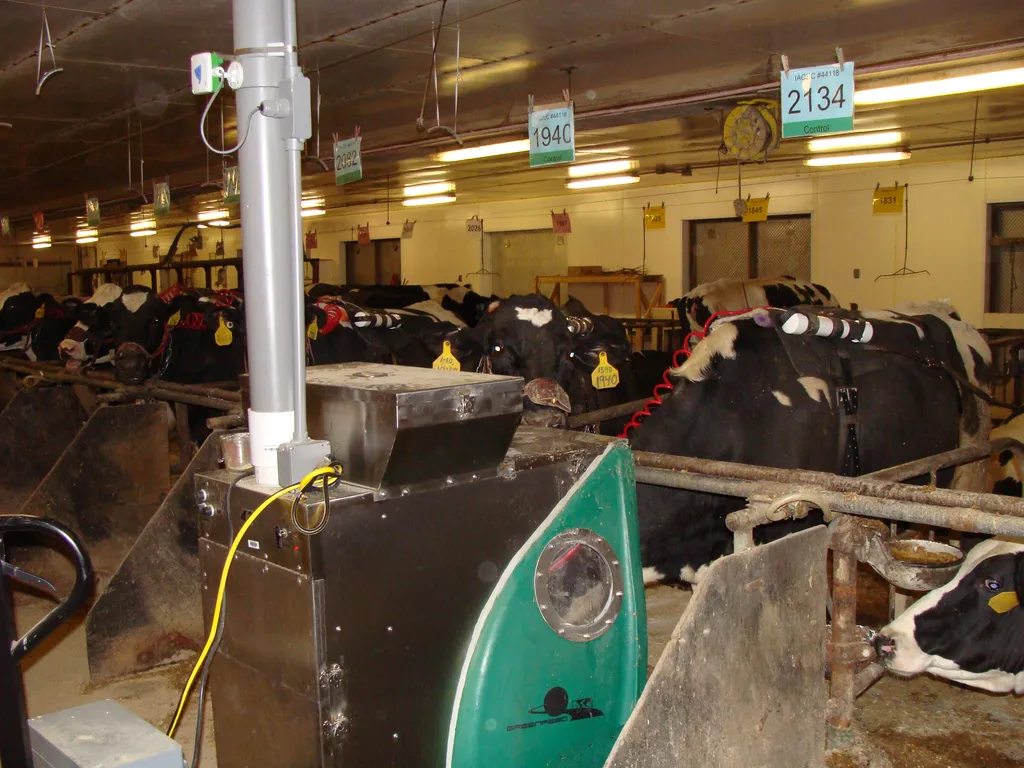In the quest to reduce the environmental impact of livestock farming, scientists are turning to an unlikely ally: seaweed. A recent study published in *Nature Scientific Reports* (translated from the original title in Swedish) has shed light on the potential and pitfalls of using seaweed-derived feed additives to cut greenhouse gas emissions from meat and dairy production. The research, led by J.-B. E. Thomas from the Department of Sustainable Development, Environmental Science and Engineering at KTH Royal Institute of Technology, offers a nuanced look at what could be a game-changer for the agriculture and energy sectors.
Livestock supply chains are responsible for a significant portion of global greenhouse gas emissions, with methane from ruminant digestion being a major contributor. Seaweed has emerged as a promising solution, as certain types can reduce methane emissions in the gut of cattle and sheep. However, the broader environmental implications of incorporating seaweed into livestock feed have been less clear—until now.
Thomas and his team conducted a comprehensive life cycle assessment (LCA) to evaluate seven different scenarios involving seaweed-supplemented feed across beef, dairy, and sheep production. Their analysis considered a range of environmental factors, including climate change, marine and freshwater eutrophication, land use, fossil fuel depletion, and water use.
The findings are a mix of promise and caution. While seaweed additives can indeed lower methane emissions in controlled laboratory settings, the real-world benefits are more modest. “We found that energy-intensive processing and long transport distances can offset the methane abatement gains,” Thomas explained. “Only scenarios utilizing low-impact by-products achieved net climate benefits.”
This research highlights the importance of optimizing every step of the seaweed supply chain—from sourcing to processing and application—to maximize environmental benefits. For instance, the choice of energy sources for processing and the duration of the global warming potential (GWP) time horizon play critical roles in determining the overall environmental performance of seaweed-based feed additives.
The study also underscores the need for a holistic approach to climate mitigation in agriculture. “Seaweed additives can contribute to methane reduction, but they won’t single-handedly deliver transformative climate benefits,” Thomas said. “We need a combination of strategies, including improved grazing practices and sustainable energy sources, to make a meaningful impact.”
For the energy sector, this research could open new avenues for collaboration. The production and processing of seaweed require energy, and optimizing these processes could create opportunities for renewable energy integration. Additionally, the study’s emphasis on low-impact by-products suggests that waste-to-energy solutions could play a role in making seaweed-based feed additives more sustainable.
As the world seeks ways to reduce the carbon footprint of food production, seaweed offers a compelling but complex solution. The findings from this study provide a roadmap for future research and development, guiding stakeholders toward more sustainable and scalable mitigation strategies. While seaweed may not be a silver bullet, it could well be a valuable tool in the fight against climate change—if used wisely.

